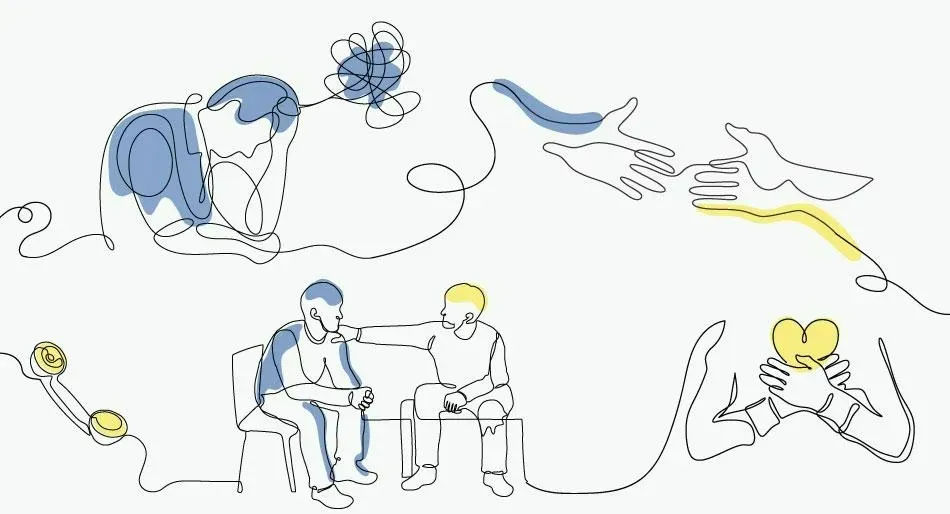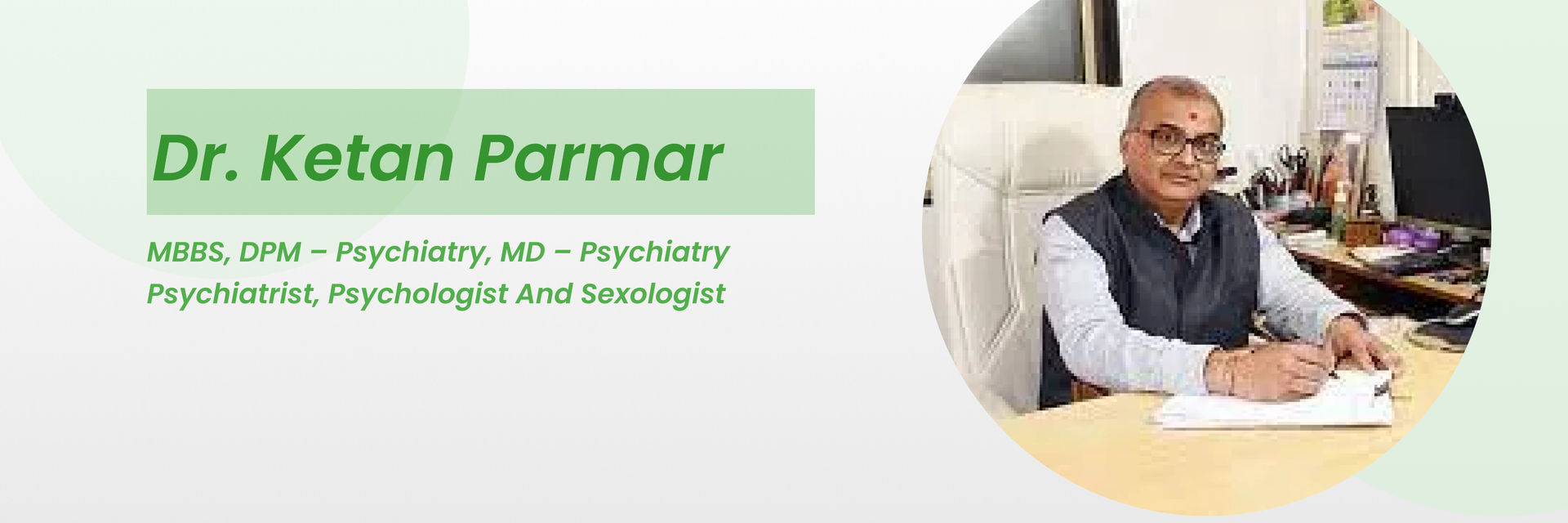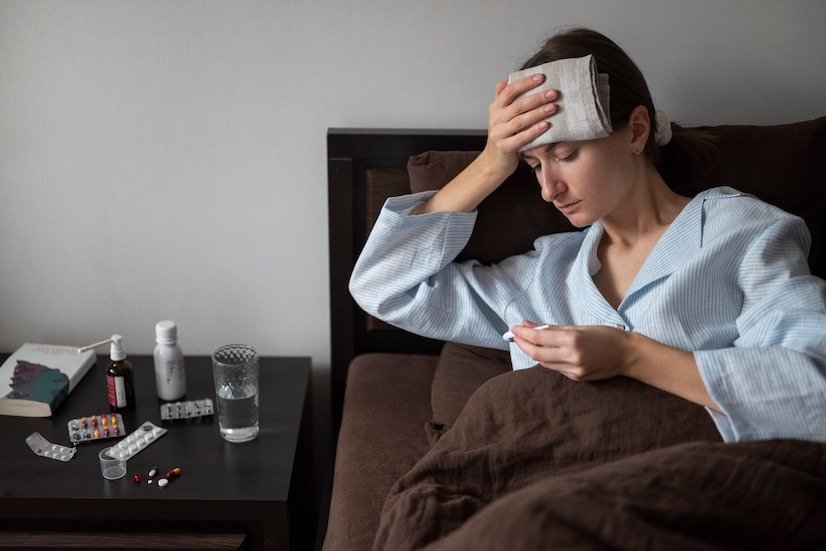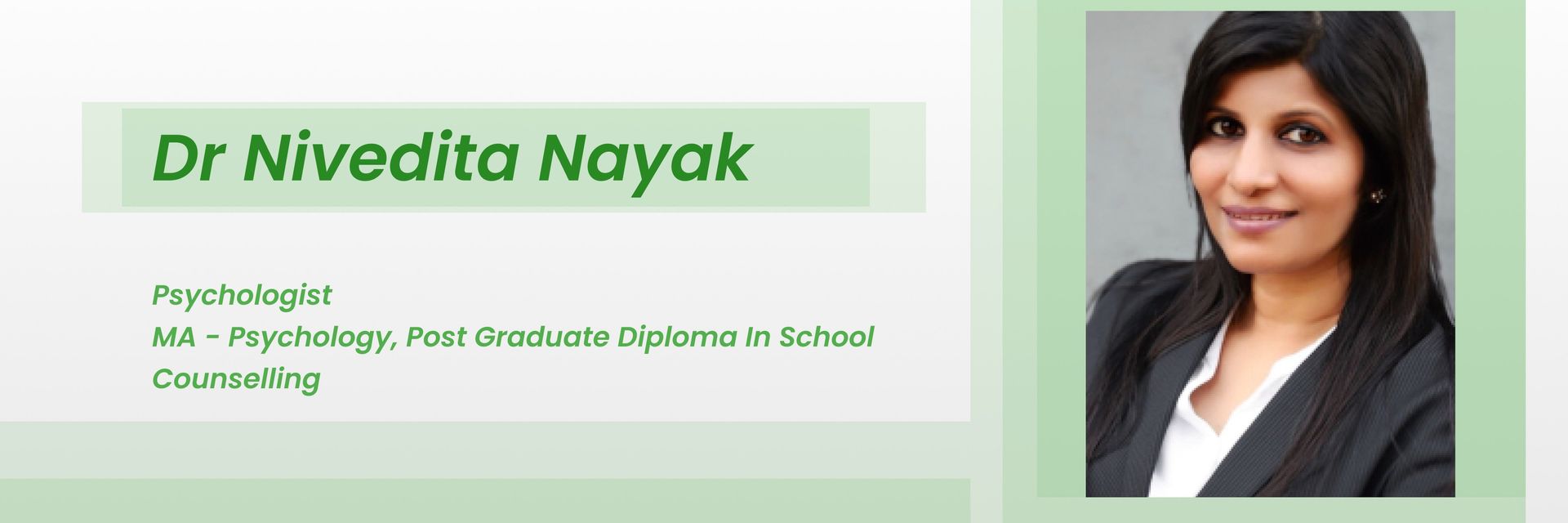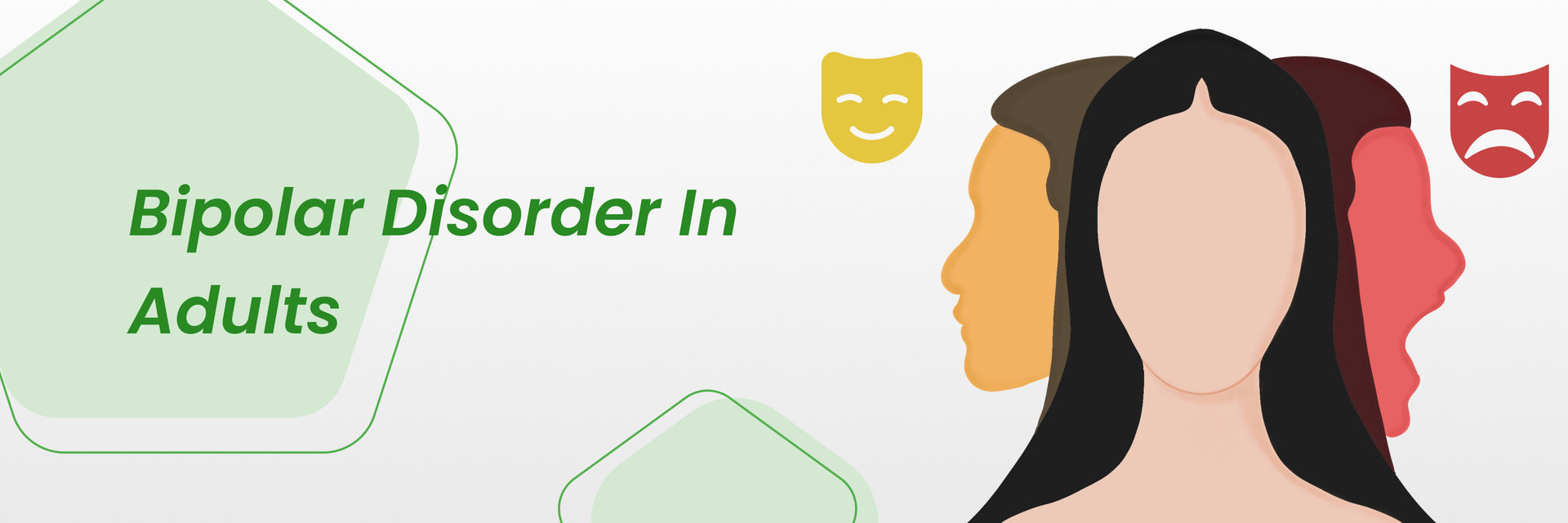From Mind to Body - Mental Well-being, A Holistic Care Guide
Mental health is an extremely important aspect of overall health and well-being. Yet, in today's world, we are often so busy with the daily lives that we tend to overlook the importance of taking optimum care of our mental and physical health. Mental health issues can affect anyone, regardless of age, gender, or ethnicity. It is estimated that approximately 1 in 5 individuals in the Indian population suffer from some form of mental health concern. Unfortunately, mental health care and awareness are still stigmatized in India, due to which, individuals hesitate from seeking the help they need.
This is where Mpowerminds comes in. It was founded in 2016 by Dr. Neerja Birla and has quickly established itself as a prominent leader in mental health care and support in India. It is an initiative of Aditya Birla education trust, dedicated to working on mental health awareness and mental health care throughout India to destigmatize mental health care.
“Mental Health Matters”, #StampOutStigma
That being said, let’s understand what holistic care in mental health means.
Holistic Mental Health Care
Holistic care in mental health refers to an approach that considers all the areas of an individual’s life while providing care and support, rather than just treating their mental health symptoms. It means taking care of their physical, emotional, social, and environmental factors. Hence, a holistic treatment plan is crucial, which addresses all the factors that may be contributing to mental ill-health. For example, it can include medication, therapy, lifestyle changes, nutritional support, and other things.
One of the primary goals of holistic care in mental health is to empower individuals to take an active role in their own healing and recovery. It includes working with them to identify their strengths, resources, and support mechanisms and eventually help them to develop the required skills and strategies. These things will enable them to cope better with their mental health concerns at any point in time.
Overall, holistic care recognizes mental health as a complex and multifaceted issue. Hence, efficient treatment requires a comprehensive and personalized approach for each individual. So, it can address all the idiosyncratic factors that may be contributing to mental health concerns.
Now, Let Us See Different Mental Health Care Services Available For Individuals
In many cases, people may not understand or cannot recognize that they are suffering from serious mental health issues. As a result, mental health care can take a backseat and remain untreated for a long time.
Different mental health tests (like personality tests, tests to measure anxiety and depression levels, etc)., administered by trained clinicians, can help you understand whether you require any support at the initial stages. However, if you are suffering from mental health issues and have been diagnosed by a professional, you should opt for proper support and treatment under professional guidance, as they are trained in giving you the best evidence-based treatment.
Centers for mental health care and awareness provide a wide range of mental health care services. Their services can include:
Counselling and Psychotherapy
Most centers offer counselling and psychotherapy services to individuals who are struggling with issues like
- anxiety,
- depression,
- stress,
- and other mental health issues.
These organizations have a team of highly trained and experienced mental health professionals who provide personalized psychotherapy/counseling sessions to each client. Most importantly, you can stay 100% sure about your privacy with the psychotherapists, as they are bound to maintain the highest ethical standards of confidentiality and a non-judgmental approach.
Psychiatry:
Mental health care providers have a team of psychiatrists on board, as well. They are highly skilled and specialize in diagnosing and treating mental illnesses with medicines if required. Some serious mental health conditions require necessary psychiatric intervention to control or subdue the symptoms that may affect an individual’s basic life functions, such as sleeping difficulty, excessive crying, fear, etc.
Art-Based Therapy:
If you prefer non-traditional approaches to mental health care, and/or if talk therapy has not worked for you, then art-based therapy is one of the best-emerging options for mental health care. This type of allied therapy uses art as a means of expression and communication of your feelings and provides relief to the individual. Individuals with artistic tendencies or those who have trouble articulating their feelings verbally can surely benefit from this type of therapy.
Mental Health Awareness:
Mental health care providers in India are committed to promoting mental health awareness so as to broaden the accessibility to mental health treatment for all. They understand the importance of breaking the stigma associated with reporting one’s mental health concerns, and they educate people about the prevalence of mental illness and the need to take treatment for it.
Now that we have basic knowledge about different services available for mental health care let us understand how they work, in detail.
Nutritional Support:
Some centres also provide nutritional support to individuals struggling with mental illnesses as it has been found to improve mental health outcomes. A balanced diet helps to regulate our body’s nutrients and energy supply, which can aid in improving one’s
- focus,
- mental sharpness,
- sweet cravings, and even
- mood swings.
Serotonin is one of the main brain chemicals implicated in depression. It has been found and documented in recent research studies that its proper functioning depends upon the food we eat.
Movement-based Approach:
As our mind and body are connected with each other, many recent studies have claimed the immense benefits of having some movement in our daily routine. It can be in the form of a regular fitness regime or a movement-based activity such as yoga, stretching, pilates, or even a simple stroll in the park.
Exercise is considered to be nature’s free anti-depressant, hence, even as small as walking for 20 minutes can help our brain to release ‘happy hormones’. Eventually, it reduces stress naturally. One recent study also claimed that sitting for long periods of time has become as dangerous as smoking a pack of cigarettes every day. Because it can double the risk of developing lifestyle diseases.
Hence, incorporating some sort of movement throughout the day can help us stay active and maintain mental hygiene.
Different Ways Of Mental Health Support & Mental Health Awareness:
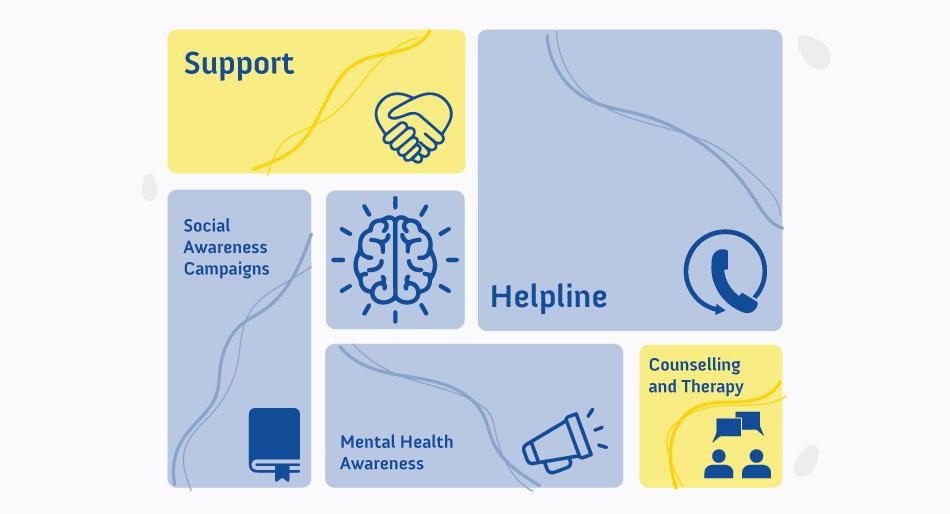
Workshops and Seminars:
Mental health providers frequently conduct workshops and seminars on mental health awareness. These events are designed in a way that they can educate the public about mental health issues. These events provide tools and resources to help individuals cope with mental health challenges.
Social Awareness Campaigns:
Mental healthcare organizations leverage social media platforms to raise awareness about mental health issues. They use their social media pages to share information and resources about mental health. This activity also helps to promote their services as the solution to mental health issues.
School and College Programs:
Students and young adults face a lot of stress with regard to their academics, career, future goals, and grades. So, understanding their problems and addressing these issues are very important. Mental health programs in schools and colleges are an easily accessible platform for this. These programs educate young adults about mental health and provide them with resources and tools to manage their stressors and help them with stress management.
Support Groups:
Mental health awareness and care centres also offer support groups for mental health concerns. These groups provide a safe and supportive environment where you can share your experiences and receive emotional support from others, who are also going through the same mental health issue. This fosters a sense of belongingness and community among its members and spreads a message that they are not alone!
Helpline:
Mental health helpline numbers are available for 24/7 assistance. It supports anybody who requires instant help at any time of the day. Thanks to these helpline numbers, one can have expert guidance from mental health professionals over the phone. They can provide information, and resources, and offer emotional support to individuals in crisis.
Online Support:
One can also avail of online support through websites. One can also access resources and tools to manage your mental well-being from legitimate online sources. Furthermore, people can connect with mental health professionals for virtual counseling and therapy sessions too.
Mental Health First Aid in India:
This is another salient way of mental health support i.e. capacity building. Mental Health First Aid is a mental health curriculum and one of the capacity-building initiatives available in India by mental health care organizations.
Many people struggle with mental health issues yet don't seek help. The reason behind this is the deep-rooted stigma associated with mental health. The mental health first aid curriculum helps the facilitators to be the first point of contact for people in need.
So, What Are The Benefits Of A Holistic Approach To Mental Health?
There are numerous benefits to a holistic approach to mental health. The holistic approach focuses on treating the person as a whole rather than just their symptoms. Here are some of the key benefits of the holistic approach to mental health:
Comprehensive Treatment:
Holistic mental health addresses all aspects of a person's life, including physical, emotional, and social well-being. By treating the whole person, rather than just their symptoms, individuals can avail more comprehensive care.
Improved Overall Health:
A holistic approach to mental health can also improve overall health. By addressing physical health along with mental health, you may experience fewer physical symptoms and illnesses, and those can contribute to improved health and energy levels.
Increased Self-Awareness:
Holistic therapies often include practices such as mindfulness and meditation. These can increase self-awareness and improve emotional regulation. It can lead to greater emotional stability and resilience, too.
Improved Coping Skills:
Supporting mental health can help you to develop healthy coping skills. These skills can be easily used in your daily life. These skills can include
- Stress reduction techniques,
- Relaxation exercises,
- Boundary setting, and
- Healthy communication skills.
Personalised Treatment:
As holistic mental health therapy takes into account the individual's unique circumstances, from which, the treatment can be tailored as per their specific needs. It helps facilitate more effective treatment and better outcomes.
Reduced Reliance On Medication:
Holistic therapies can be used in conjunction with medication. But they may also reduce the need for medication in some cases. By addressing the root causes of mental health issues, you can manage your symptoms without relying solely on medication.
Greater Sense Of Purpose:
Holistic therapies often incorporate spiritual practices, which can provide individuals with a greater sense of purpose and meaning. This can contribute to improved mental health and overall well-being as well.
Overall, a holistic approach to mental health can provide individuals with a more comprehensive and personalized approach to treatment. By addressing all aspects of a person's life, individuals may experience improved mental and physical health, increased self-awareness, and a greater sense of purpose.
